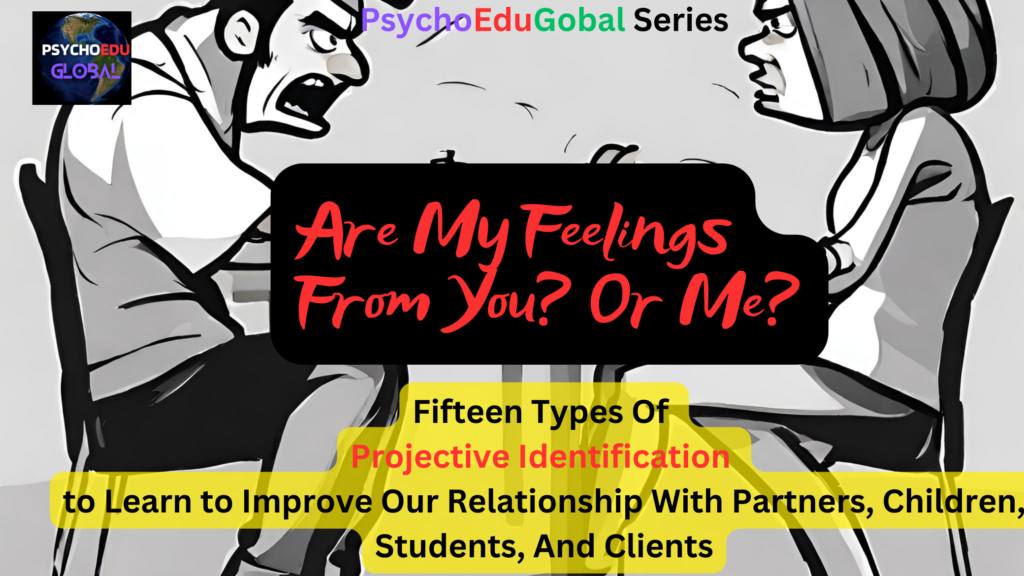In complex human relationships, intricate mechanisms exist by which individuals interact and relate to one another.
One such psychological phenomenon that often goes unnoticed but profoundly impacts relationships is “projective identification.”
Coined by Melanie Klein, a renowned psychoanalyst, projective identification involves projecting one’s feelings, thoughts, or aspects of the self onto another person.
This process can take various forms and has the potential to either strengthen or strain relationships.
In the psychoeducation course, “Object Relations Training for Parents, Teachers, and Coaches.” we will delve into projective identification, exploring its different types and providing real-life examples to shed light on how it manifests in relationships.
Understanding these types can help us become more aware of our own behaviors and reactions in relationships and foster healthier connections with those around us.
So, what exactly is projective identification?
Projective identification is when someone unconsciously sees their own thoughts, feelings, or qualities in another person and treats that person as if they possess those thoughts, feelings, or qualities.
It’s like taking your own positive or negative emotions or traits and projecting them onto someone else, sometimes causing misunderstandings or conflicts in relationships.
For example, if you’re angry but don’t want to admit it, you might act as if the other person is angry, even though they might not be.
And if you experience encouragement and empathy through counseling or coaching, you tend to become the same way toward others.
Many of us remember the success story of Coach Hiddink for Korea in the World Cup in 2002.
Our feelings and thoughts can affect how we see and treat others without realizing it.
Now, let’s explore the different types of projective identification we’ll cover in this course:
We have fear-based, dependence-based, power-based, competition-based, rebellion-based, co-dependence-based, insecurity-based, anger and hostility-based, sexuality-based, anxiety and guilt-based, ingratiation-based, obsession and compulsion-based, encouragement-based, freedom-based, and empathy-based projective identification.
These outlines provide a brief understanding of each type of projective identification, their definitions, and examples of how they may manifest in relationships.
In our Object Relations training course, we will explore each type of projective identification in more detail, examining the dynamics, consequences, and strategies for addressing these relationship patterns.
Understanding these dynamics can empower individuals to navigate their relationships with greater awareness and empathy.
Learn more about our course, “Object Relations Training for Parents, Teachers, and Coaches.”https://psychoeduglobal.com/psychoeducation_courses/
Let’s embark on this journey of self-discovery and relationship growth together.

